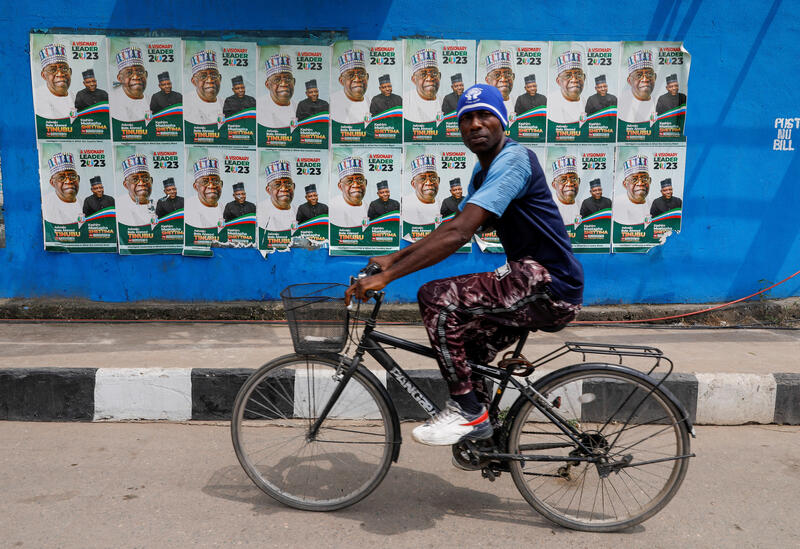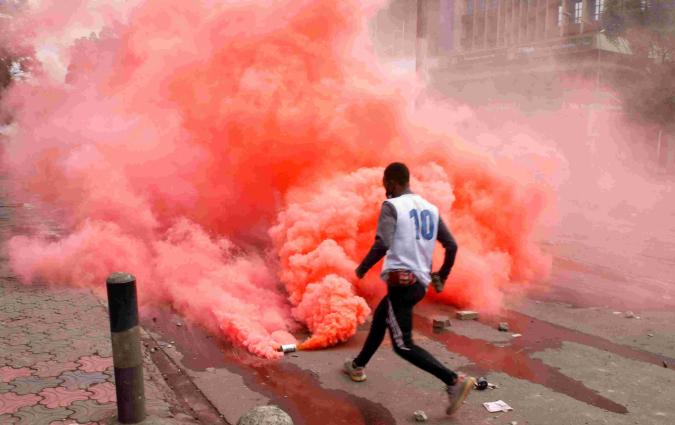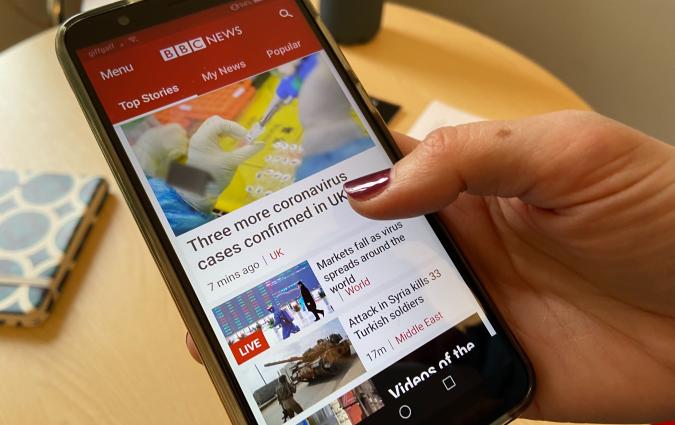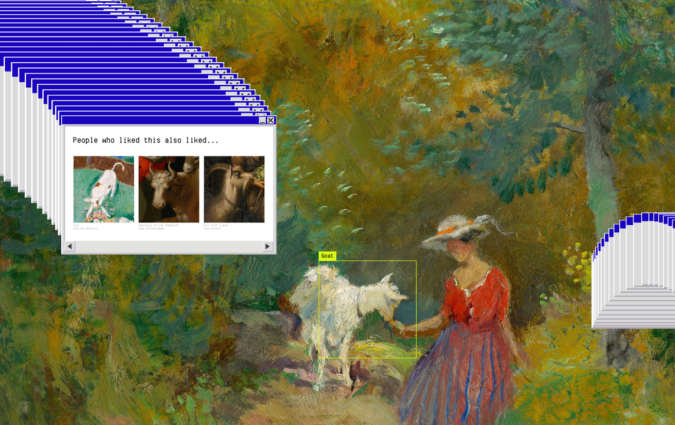Prepare ahead and beware of propaganda: tips to cover the Nigerian elections

A man rides a bicycle past electoral campaign posters in Lagos, Nigeria. REUTERS/Temilade Adelaja
Election cycles are usually a critical and tense period in Nigeria. Journalists covering the elections are increasingly at great risk in the line of their assignments – from harassment, intimidation, arrests, and violent attacks leading to death.
Ahead of the general elections on 25 February, media outlets, newsrooms and reporters are getting ready for the coverage on the outcome of the voting process. I spoke with Nigerian journalists who have experience covering elections, press freedom advocates and media development experts who shared tips on what reporters should look out for while in the field.
Staying safe in danger zones
There is growing insecurity in Nigeria – from the Boko Haram insurgency in the North East and banditry and militia gangs in the North West to separatist agitations in the South East. This security situation may largely affect reporters who report from every part of the country.
Kemi Busari, who has covered previous local and national elections, said journalists should be very concerned about hostilities.
“Beware of your environment,” he said. “Move around together so that someone can call for help if anything happens to any of you.”
Busari said reporters should know where to identify themselves. “In some places, you may need to remove your press tags or anything that identifies you as a journalist for security reasons,” he says. A place that is hostile to journalists may likely attack you when they see you identify as one.”
Busari advises reporters to compromise when needed. “When I say compromise, I mean playing to the gallery to get yourself safely out of a tight or difficult situation,” he says.
Jonathan Rozen, senior researcher at Committee to Protect Journalists (CPJ), says that in the runup to the upcoming 2023, journalists in Nigeria expressed concerns that insecurity in various parts of the country will make it difficult to access polling sites and report safely.
“Many have said that they worry political supporters may perceive them as being associated with a particular political party and treat them with hostility as a result,” he says. “Some journalists also worry that there may be a shutdown or disruption of internet services or online platforms, similar to the recent blocking of Twitter, which would hinder their ability to report.”
Rozen has some advice: “Speak with other journalists who have reported in the area you will be covering and ask them how you should prepare for and approach coverage,” he said. “Familiarise yourself with the local social and political context of the area you will be covering, and think through how you will be perceived and how you will leave the area if you determine it is no longer safe.”
Rozen says that reporters on election duty should make sure their colleagues understand where they will be and check in with them at regular intervals. “Ensure you have contact information for relevant authorities in case you require assistance and consider which mobile provider will have reliable service for the area you are covering,” he says.
Bamas Victoria, editor at the International Centre for Investigative Reporting, advises reporters to get a local field producer who can serve as translator when working in an environment they are not familiar with.
“Reporters in the field should have a handler who is stationed at the office who they give an update about their movement,” she says. “They should have a predetermined word or phrase they can send should they be in danger.”
Rozen stresses security situations can vary widely across the country and even within a given state. “Media outlets should ensure they understand the specific dynamics of a given area and tailor their preparations and precautions accordingly,” he says.
As in previous years, the CPJ will be closely monitoring the elections, providing journalists with safety information as needed, and documenting press freedom violations if they take place.
Rozen says that journalists should review CPJ’s safety kit for covering elections, which includes a checklist for editors, as well as specific tips on physical, psychological and digital safety. The kit also offers advice for preparing for a communications blackout.
“Covering elections in Nigeria has come with demands and risks,” says Olanrewaju Oyedeji, a journalist at Dataphyte who has covered previous elections. “Apart from the need to visit election locations, there is a need to be aware of things happening around the places where these elections occur. There is also the challenge of expectations where millions rely on journalists to ensure credibility in election reportage, but the question of how much journalists can go also becomes crucial.”
Avoid misinformation and propaganda
Mercy Abang, a Nigerian journalist and the CEO of Hostwriter, a Berlin-based cross-border journalism organisation, says every source of information must be fact-checked.
“Even statements issued by government agencies need fact-checking and double-checking,” she says. “The internet is always abuzz during elections. Keep in mind that some user-generated content and eyewitness claims also need double-checking, as most influencers and people making claims about events might be untrue. You want to take your time and report events that lack merit.”
Abang stresses that during election times politicians usually roll out data and statistics to their supporters. She advises journalists to verify every figure before rushing to publish.
Abang says some of the national dailies in the country are owned by deep-pocketed politicians who are also interested in the electoral process.
“In some cases, the owners of these media organisations and their supporters are in the ballot too, so be wary of the figures churned out based on who is reporting what,” she says. “It is okay to read headlines reeling out different winners emerging from these papers at the same polling units. They're there to serve the founder, so it is essential to hold, double-check, and rely on something other than some national dailies to file that story.”
Victoria, the editor at the International Centre for Investigative Reporting, recommends “avoiding being a tool used in amplifying misinformation and disinformation,” adding that her media organisation has done a series of sensitization reporting that will not only be beneficial to the public but also to journalists.
“My experience tells me that the week of the elections is often flooded with misinformation,” she says. “I can’t recall a general election since I started journalism where fake results were not circulated – and many more will be out. Party officials and their spokespersons will deliberately feed reporters false information they hope will play to their own advantage.”
Motunrayo Alaka, executive director of the Wole Soyinka Centre for Investigative Reporting, says it is not only important to report factually and accurately, but also fairly.
“This is a time when accuracy is needed more than ever before,” she says. “We need a balanced and accurate reporting of that information that serves the interests of the public.”
Preparing ahead
Getting ready weeks before the election begins is one good way of staying up ahead. This helps a reporter to check all the to-do-boxes and not be taken unaware of unfolding events in the field.
Adesola Akindele-Afolabi, Insights associate manager at Stears and former Journalist Fellow at the Reuters Institute, says reporters should prepare ahead by reading up on all possible case scenarios that relate to their assignment.
“If you are covering a polling unit, know the candidates contesting there and their duties because they will come to vote and it is your duty to ask them important questions about their potential constituents,” she says. “So, do the work and research needed to provide quick insights and ask relevant questions during your coverage.
Akindele-Afolabi says this helps in providing contexts on their coverage: “Without background knowledge, it’s hard to know who a candidate is, what their views and opposing views are and why they matter.”
Abang advises reporters to follow the activities of the Independent National Electoral Commission (INEC), the national body incharge of organising Nigeria’s general elections.
“While it is good to observe voting and activities carried out by party agents during the voting process, collation is the next most important area to pay attention to,” she says. “In Nigeria, the collation of results is where events tend to happen. Rigging takes place at this stage.”
Alaka says reporters need to do deep research on the peculiarities of people, places and events before the elections. “We should not just base our facts on assumptions,” she says. “There is limited time during elections, but we should dedicate some time to do good research on what we want to put out.”
Staying alert in the field
Staying alert during election duties is important. If 24 hours, they say, is a long time in politics, for Nigeria 24 hours can be a decade because a lot can happen within that time frame. “Stay active and aware of events,” Abang says. “The electoral process is more sophisticated than it used to be many years ago, but some challenges linger.”
Abang suggests reporters should take note of flashpoint areas as some areas will be tense. “Look out for these places and stay alert always while covering the elections,” she says. “Move around with gadgets, accredited press tags and rechargeables to ensure your devices are always charged, along with fast food and a lot of liquid.
Since movements are restricted on election day and there are no commercial activities or vendors in sight to prepare, Abang says reporters on duties should ensure they have enough in their backpack to snack on during the day.
Digital security
Strengthening your digital security and making sure your devices are well protected is very important while covering difficult assignments. Political leaders who want to retain their grip on power may take desperate steps to tap into the devices of reporters or activists as a way of obtaining sensitive information.
The CPJ provides important resources to help reporters and editors protect their gadgets and stay digitally safe during election coverage.
“Review what information is on your phone or laptop,” says a CPJ safety guidelines on covering elections. “Backup and delete documents, photos, videos, and other material that contain personal information about you, your family, or your sources.”
The guidelines advise reporters to be mindful that “documents gathered while doing research for election-related stories could put you at risk”.
Oyedeji says the issue of digital security and safety should also be appropriately taught to journalists covering elections. “This is one of the most important skills apart from physical safety while reporting elections,” he says.
“Phone calls and SMS messages can be intercepted, so where possible use end-to-end encrypted messaging services, such as WhatsApp or Signal, to communicate with others,” the CPJ advisory says. “Where possible set messages to delete after a certain timeframe.”
Welfare concerns
Journalism remains a poorly paid job in Nigeria. Journalists work without adequate welfare – health insurance, dental, pension or retirement benefits. In the worst cases, employees owe salaries for months while reporters struggle to pay bills.
This issue could have an impact on how reporters conduct themselves. But Busari advises that reporters should never accept gifts while on election duties. “Party agents come with gifts to entice journalists and bribe them so they can look away or write reports in their favour,” he says. This may backfire, Busari advises, adding that any party agent who gives gifts to reporters obviously has them to do his biddings.
“Newsrooms are not doing enough on the welfare of journalists covering elections,” Busari says. “Election coverage is different from the coverage of day to day issues, so this is the reason some journalists compromise in the field because they are not properly mobilised financially. So, one key thing is for journalists to be provided with adequate resources before they go to the field.
In every email we send you'll find original reporting, evidence-based insights, online seminars and readings curated from 100s of sources - all in 5 minutes.
- Twice a week
- More than 20,000 people receive it
- Unsubscribe any time







